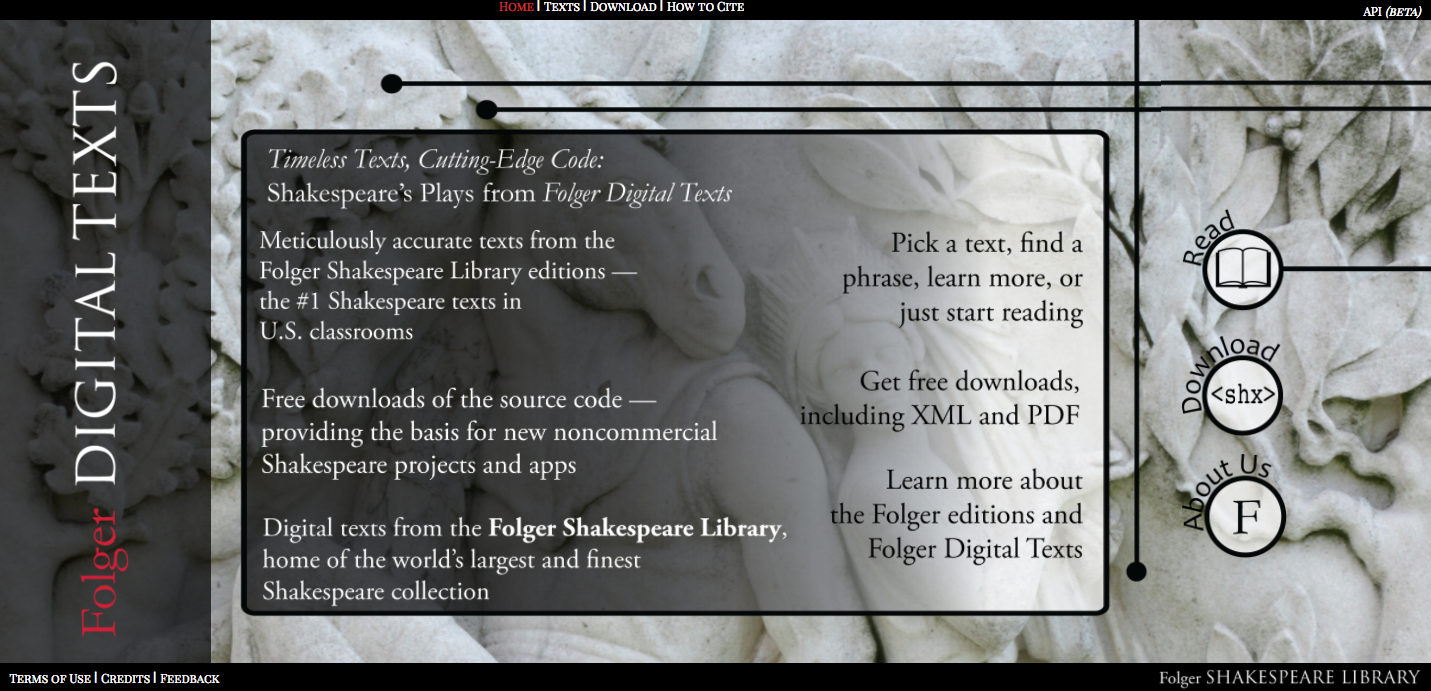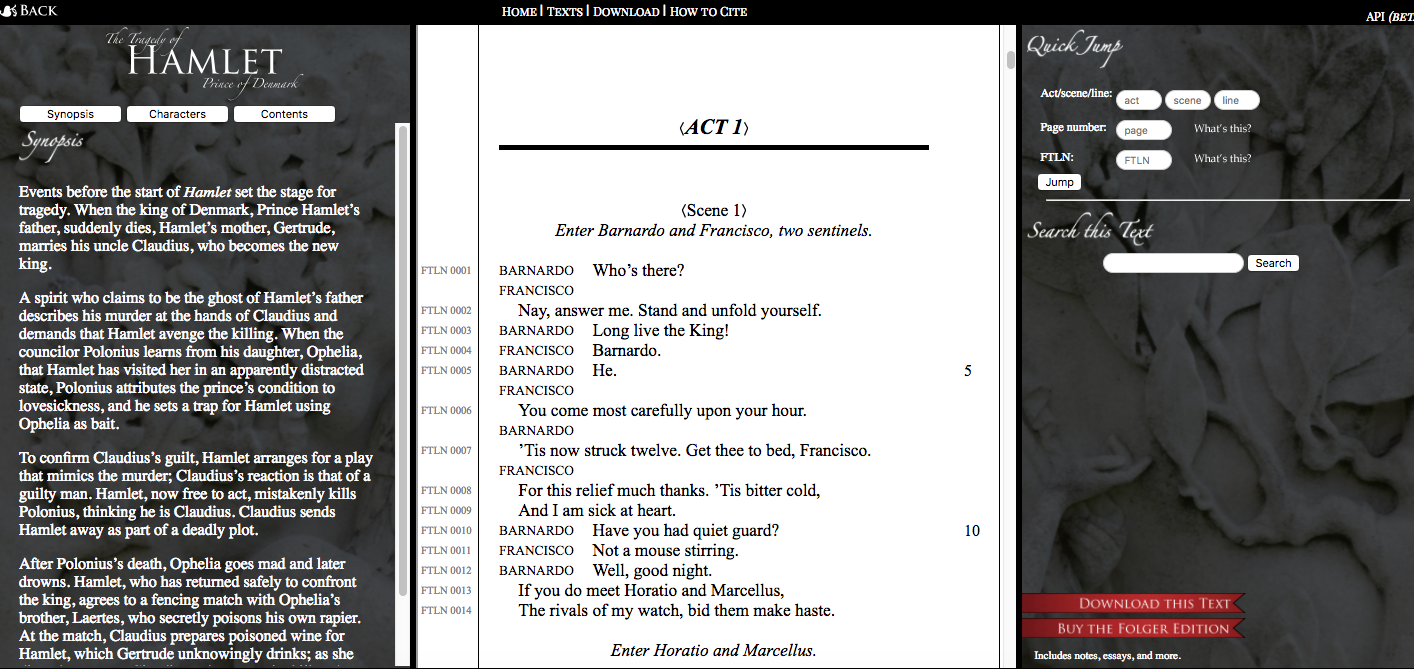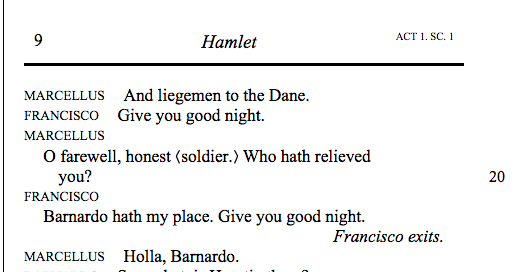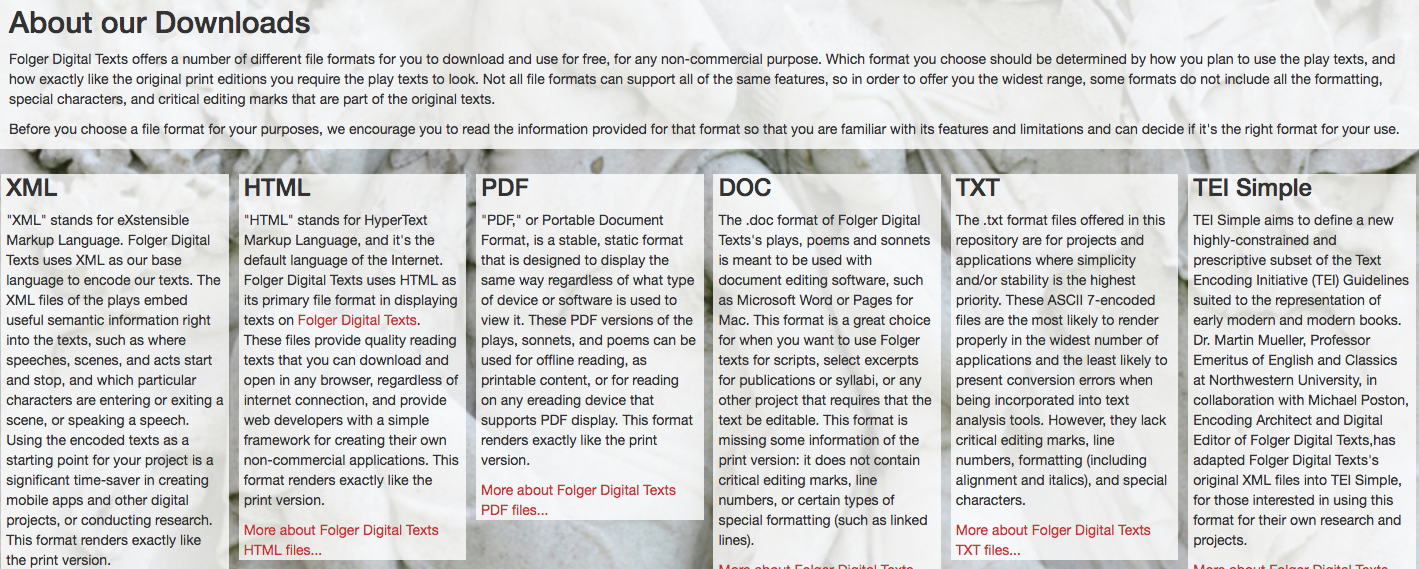Folger Digital Texts is a project undertaking a very traditional humanities aim – preserving, organizing, and making available Shakespeare’s collection of works – but breaks newer ground with digital tools and a great contribution to the collaborative, open source nature of digital humanities initiatives.
Shakespeare can be found everywhere, to be sure, but these editions are unique because they offer a highly readable, navigable, and interactive text to users. Physical books, PDFs, and simpler websites containing Shakespeare’s work are limited when it comes to these features, which is why the digitals tools the Folger Shakespeare Library implements really shine. Public domain texts with the widespread cultural impact that Shakespeare has are always going to be available, but a project like this ensures a quality reading experience to those who might otherwise lack access to a reliable physical edition or digital file.
For instance, once you open a play of your choice – let’s say, Hamlet – you are immediately shown a few displays. In the center of the website is the play itself, formatted much like a physical book with a clear, attractive layout. On the left, you have a display of information about the text, which is present throughout the reading experience. You can switch between a synopsis, a character list, and the table of contents of the work. If you have forgotten who Reynaldo is, for instance, you only need to slide your eyes to the left to see that he is Polonius’ servant. If you have been reading Act III for what feels like an eternity and want to know exactly how many scenes are left to get through, again, look to the left. There is no flipping between pages or scrolling endlessly to find what you need here; the tools exist for you to find background information, lines, and scenes immediately.
Furthermore, the text is marked at various points to indicate some of the changes between versions of the play; wherever there is a square bracket one can hold their cursor over, a note will appear with information about the version this word or phrase came from. This illustrates how scholarly work has been carefully encoded into the edition, although this feature is fairly limited in this project – it would be fantastic to have more complete scholarly notes strewn throughout the text. For a free online resource, however, this may be a tall order.
Projects such as this can be achieved through the use of TEI (Text Encoding Initiative), a language developed from XML that presents humanists with a general set of guidelines for digitally encoding texts. A thorough explanation of TEI can be found here, but you can see the process that may have been undertaken to encode Titus Andronicus in one of this website’s examples, including some important elements:
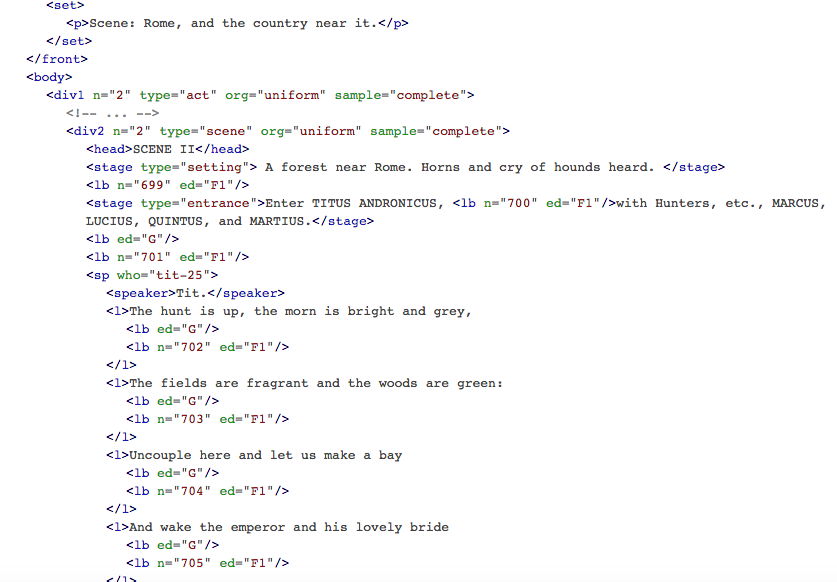
Outside of creating an accessible and dynamic collection of Shakespeare’s works, Folger Digital Texts also has another purpose, one that marks it as even more unique from traditional humanities projects. For every play, there is an option to download the complete, edited text in seven different file formats: XML, HTML, PDF, DOC with line numbers, DOC without line numbers, TXT, and TEI Simple. This turns the project into an excellent, centralized source for those accessing Shakespeare’s work to use in further digital projects – maybe humanists can pull a file to perform textual analysis of a play, examine relationships between Shakespeare plays and more recent works, or develop a digital edition with a different aim.
This spirit of open collaboration is a bit different from the type of collective work traditionally done through scholarly references, panels, and journals. Scholars can use this project to build many others simultaneously, freely, and easily (at least to the extent that they can begin with a reliable text file). There is no need to build a digital edition of a Shakespeare play from scratch for further initiatives when a TEI Simple file can be accessed at the click of a button. The Folger Shakespeare Library has recognized a need to share its labor with other digital humanists, and this focus on the growth of the field is very promising for those of us just getting started.

